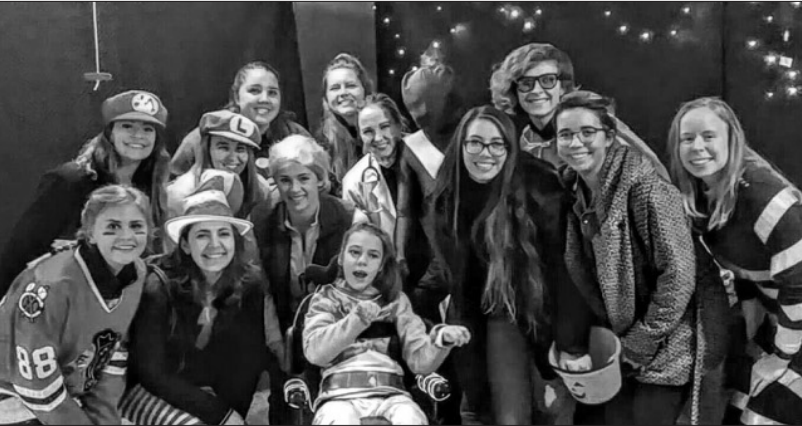For most people, the concept of a donation drive brings to mind collecting food donations, used clothing or other items of necessity. Few consider the thought of donating their voice, an effort that has gained momentum with the recent advancement of sound technology in the past several years.
This month, the College’s softball team has organized Wellesley’s very first voice drive, an opportunity for students to donate their voices in order to provide non-verbal individuals the gift of their own customized voice. The drive is held in collaboration with VocaliD, a for-profit company that uses sound technology to create customized voices for individuals that rely on the aid of text-to-speech devices.
The idea for the voice drive stems from the softball team’s involvement with Team IMPACT, an organization that pairs children facing chronic illnesses with collegiate athletic teams, making the child an honorary member of the sports team throughout their treatment. The purpose of this organization is to cultivate strong relationships that offer the diagnosed child encouragement, resiliency and courageousness.
In 2014, as part of their involvement with Team IMPACT, the softball team drafted Maeve Flack, a seven-year-old girl diagnosed with spastic quadriplegia, a subset of cerebral palsy. The effects of Flack’s condition left her non-verbal, prompting her to communicate with the help of speaking technologies. That year, VocaliD was a relatively new organization, and Flack was one of the first to receive their individualized voices.
“Even though Maeve had already received her voice from VocaliD, we still wanted to help out with this amazing project,” said Sydney Hopper ’19, one of the main organizers of the softball team’s voice drive. “There had been talk in years past of the team doing something with VocaliD, but this year we decided we wanted to not only donate our own voices, but to get the Wellesley community involved.”
In order to participate in this drive, donors must create an account on VocaliD’s website and submit a profile that will offer information about their age, cultural background and other characteristics that contribute to the sound of their voice. This data will be used to match the speaker to an appropriate recipient.
Donors must then use a computer and a headset with a microphone to record 3,500 provided sentences, a process that may take up to seven hours, but can be broken down into shorter intervals. Linguists and sound engineers then use these submitted recordings to synthesize a personalized voice by blending the donor’s voice with three seconds of sound from the recipient. The result is a more individualized digital voice.
While it may seem daunting to record 3,500 sentences, one of the advantages of this drive is that it is completed online and is entirely self-scheduled, so donors can produce their recordings on their own time. This flexibility not only allows them to record in multiple sittings, but also permits them to work around their busy schedules.
According to Hopper, one of the main challenges of organizing the voice drive was ensuring that donors had access to proper equipment and a quiet environment so they could produce their sound recordings. She added that the recording process itself could also be difficult, as the donors must read all their sentences with natural, normal tones.
“While someone might volunteer five to seven hours in a day in other settings, there are just too many sentences to do at once—you could try, but it would be very difficult,” she said. “This can be challenging because instead of agreeing to join the cause for half a day, as many volunteering projects involve, students are committing themselves to a process over several weeks—it takes organization, dedication and discipline to get all of the sentences recorded.”
Thus far, over 100 participants have volunteered to partake in Wellesley’s voice drive. One such student, Adeline du Crest ’19, explained that she chose to participate in the voice drive because she feels that a person’s voice can greatly contribute to their identity.
“Part of what enticed me to participate in [the voice drive] was how simple it could be to help in a meaningful way, other than donating money,” du Crest said. “I do a lot of theatre, so my voice is a big part of my identity, and I rely on it an incredible amount. I can’t imagine what it would be like not having access to it, which is why giving my voice to those who have been silenced is important to me.”
Julia Warner ’18, one of the coorganizers of the drive with Hopper, elaborated on the importance of the voice drive and the joy it can bring to the recipients.
“I think donating voices should be considered as crucial as donating blood or hair,” she said. “Those who rely on generic voices deserve the opportunity to have their own unique vocal identity because a voice is an important part of one’s identity as a whole. I believe receiving this piece of their identity brings a great deal of happiness into their lives and it should not be overlooked or undervalued.”
Hopper also added that the voice drive, in a symbolic sense, serves as an opportunity for non-verbal individuals to seek out and embrace an aspect of their identity.
“Everyone deserves to have their own identity and to share that identity with others as they see fit—by donating our voices, we are allowing people the chance to celebrate their own selves in ways that haven’t been possible before, as they’ve had to rely on generic voices,” she said.






